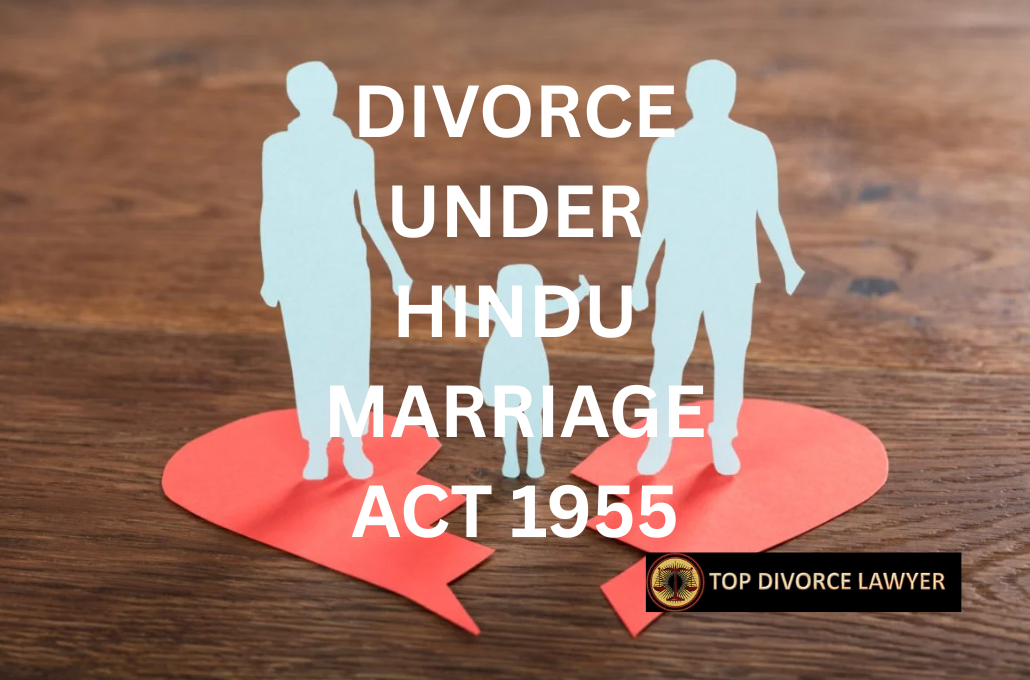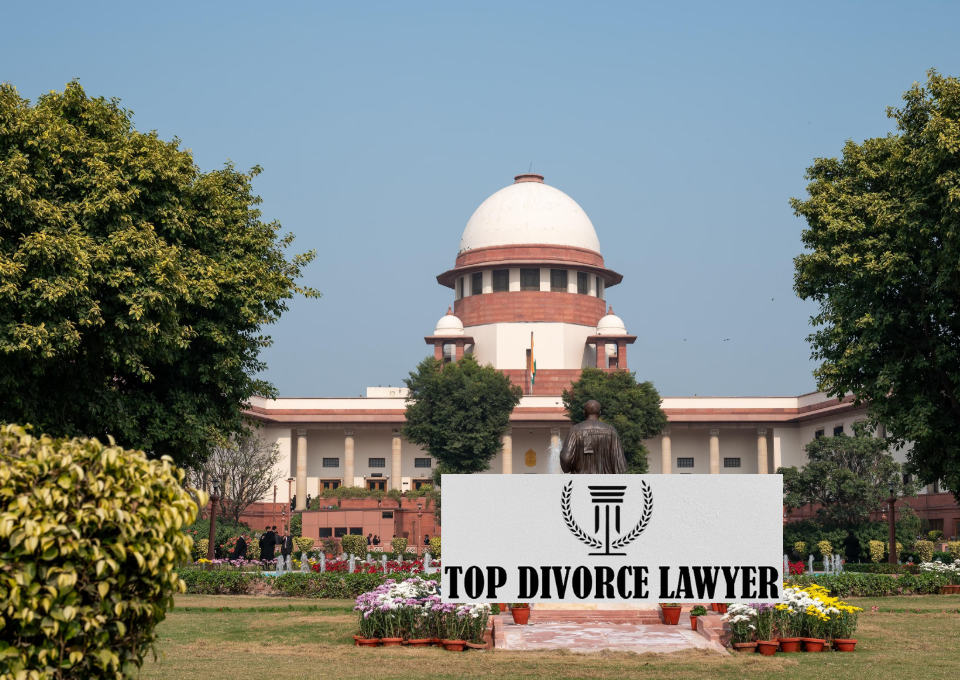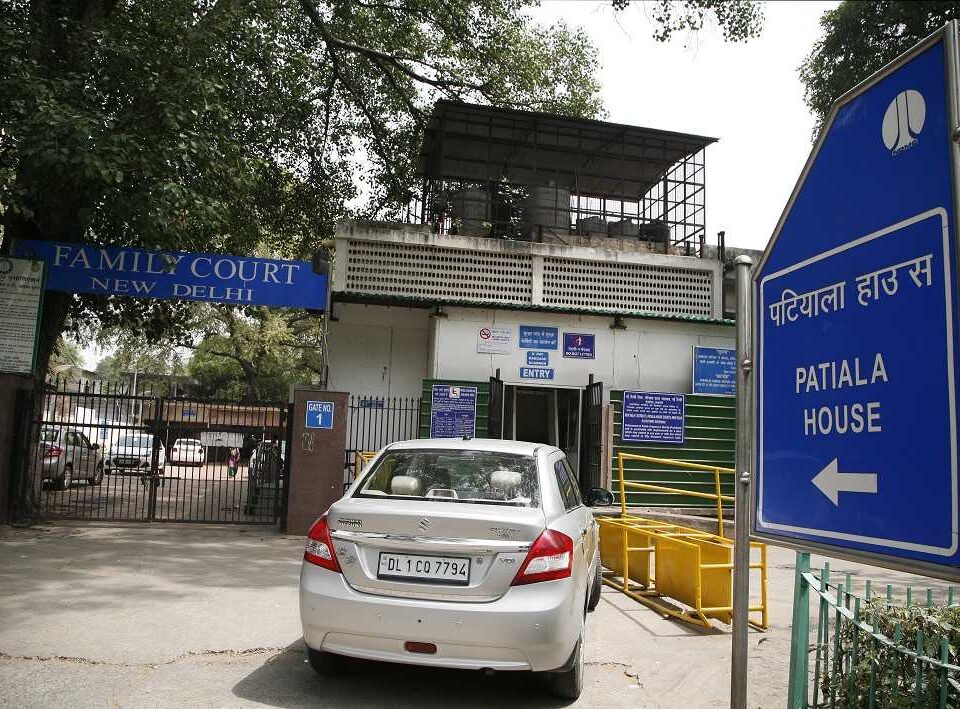Contested Divorce: When Separation Becomes a Legal Battle
A contested divorce occurs when one spouse does not agree to end the marriage or when both parties cannot reach an agreement on critical matters such as child custody, alimony, property distribution, or maintenance. In such cases, the divorce is not granted based on mutual consent but must be fought and resolved in court. This form of divorce is generally more time-consuming, emotionally taxing, and legally complex compared to a mutual divorce. It is governed by Section 13 of the Hindu Marriage Act, 1955, and can be filed on specific grounds such as cruelty, adultery, desertion (for at least two years), mental disorder, conversion to another religion, renunciation of the world, or the presumption of death (if one spouse has been missing for seven years or more). The contested divorce process begins when one spouse files a petition in the family court, outlining the legal ground on which the divorce is sought. The court then issues a notice to the other spouse, who must respond with either a counter-petition or a defense. This is followed by multiple stages of legal proceedings, including submission of evidence, witness examination, cross-questioning, and legal arguments by both parties. The court, after examining the facts and hearing both sides, delivers a judgment, either granting or denying the divorce. Since this process involves disputes and legal battles, having expert legal representation is crucial. Emotions often run high in contested divorce cases, and without proper legal strategy, you may risk losing custody rights, fair financial settlements, or even the divorce itself. At Top Divorce Lawyer, we provide comprehensive legal support to clients navigating contested divorce cases. Our experienced lawyers help with everything from drafting strong petitions, collecting evidence, and presenting arguments in court, to offering emotional and legal guidance throughout the proceedings. We understand the emotional and mental toll that a contested divorce can take, especially when children or significant assets are involved. That’s why we offer not just legal expertise, but also compassionate and confidential support to ensure our clients feel heard, protected, and empowered. Whether you’re filing or defending a contested divorce, our goal is to secure the best possible outcome for your future.

Why Choose Us
- Family Law Experts : We specialize in contested divorces, offering expert legal guidance under the Hindu Marriage Act.
- Strategic Case Approach : Our legal team builds strong, strategic arguments tailored to protect your rights and interests.
- Experienced Legal Team : With years of courtroom experience, we handle complex and high-conflict divorce cases with confidence.
- End-to-End Support : From petition filing to final decree, we manage your entire divorce process professionally and efficiently.
- Confidential & Trustworthy : Your privacy is our priority—we handle your case with complete discretion and legal integrity.
- Client-Centered Service : We listen, understand your situation, and craft solutions that reflect your needs and expectations.
Grounds for Contested Divorce in India
In India, a contested divorce is governed by Section 13 of the Hindu Marriage Act, 1955, which outlines specific legal grounds on which a spouse can file for divorce without the consent of the other party. These legal grounds are designed to address serious issues that make it impossible for the marriage to continue. Understanding each ground in detail is crucial before initiating legal action, as the petitioner must prove the allegation in court with supporting evidence and testimony. At Top Divorce Lawyer, our legal experts guide clients in identifying the right ground that applies to their situation and assist in building a strong case around it. One of the most common grounds for contested divorce is cruelty—which may be physical or mental. Physical cruelty involves acts of violence, whereas mental cruelty can include constant humiliation, abusive language, emotional neglect, or false accusations. Courts require evidence of ongoing behavior that has caused severe distress or harm to the petitioner. Another valid ground is adultery, which involves one spouse engaging in a sexual relationship with someone outside the marriage. Proving adultery requires substantial circumstantial evidence, such as hotel records, photos, or messages, as direct proof is rarely available. Our legal team ensures all available evidence is collected, authenticated, and presented effectively. Desertion is also a recognized ground for divorce, where one spouse has voluntarily abandoned the other without any reasonable cause for a continuous period of at least two years. The petitioner must prove that the desertion was intentional and without consent. Mental disorder is a ground when one spouse suffers from a severe mental illness that makes it impossible to live together. Similarly, conversion to another religion, renunciation of worldly life (becoming a sanyasi or monk), and presumption of death (if a spouse has not been heard from in seven years or more) are also considered valid legal grounds. Each of these grounds requires careful legal interpretation and strong documentation. Filing without proper preparation can result in dismissal or prolonged litigation. At Top Divorce Lawyer, we help clients determine the appropriate ground, collect necessary evidence, and ensure that their case is presented convincingly to achieve the best possible outcome.
Procedure Involved in Contested Divorce
The procedure for a contested divorce in India is more detailed and time-consuming compared to mutual consent divorce, as it involves legal disputes, evidence, and court intervention. It begins when one spouse files a divorce petition in the appropriate family court under Section 13 of the Hindu Marriage Act, 1955. This petition must clearly state the legal ground on which the divorce is being sought, such as cruelty, adultery, desertion, mental illness, or any other applicable reason, along with all supporting facts. Once the petition is filed, the family court issues a legal notice to the other spouse, informing them of the case and providing a date to appear before the court. The respondent (the other spouse) is required to file a written reply—either accepting or contesting the allegations. If the allegations are contested, the case proceeds to trial. The next stage involves submission of evidence by both parties. This includes documents, emails, medical records, property details, photographs, or any material that supports the claims made in the petition or reply. After the documentary evidence is submitted, the court records oral evidence, where both spouses and their witnesses are examined under oath and subjected to cross-examination by the opposing counsel. Following this, the lawyers from both sides present their legal arguments to the judge. The court examines all evidence, testimonies, and legal submissions before making a final judgment. In some cases, especially those involving children or high-conflict financial issues, the court may direct counseling or mediation to explore the possibility of settlement or mutual consent before continuing with the trial. The entire process can take anywhere from one to three years, depending on the complexity of the case, availability of evidence, and court workload. Delays can also occur if either party does not cooperate or repeatedly files appeals or interim applications. At Top Divorce Lawyer, we provide complete legal support throughout this complex journey. From drafting the petition to gathering evidence, preparing witnesses, handling court procedures, and presenting strong arguments—we handle it all. Our strategic, step-by-step guidance ensures that you are well-prepared, legally protected, and represented professionally at every stage of your contested divorce case.
Challenges Faced in Contested Divorce Cases
Contested divorce cases are among the most emotionally and legally challenging matters handled in family courts. Unlike mutual divorces, where both spouses agree to the terms of separation, contested divorces involve disputes, allegations, and courtroom battles. This often results in a long and exhausting legal process. One of the most common challenges is dealing with false or exaggerated allegations. In many cases, one party may falsely accuse the other of cruelty, abuse, or misconduct in an attempt to gain leverage in matters of child custody, alimony, or property division. These claims not only prolong the legal process but also cause significant emotional distress. Another major issue is the delayed nature of proceedings. Contested divorce cases can stretch over several months or even years, depending on the complexity of the case, the evidence involved, and the responsiveness of the parties. Frequent adjournments, non-cooperation from one spouse, or court backlogs can all contribute to unnecessary delays, adding frustration and uncertainty for the person genuinely seeking relief. Property and financial disputes also pose a significant challenge. Disagreements over who owns what, division of joint assets, maintenance, and financial support often become points of intense conflict. These issues can be further complicated when one party attempts to conceal income or undervalue assets to reduce liabilities. The lack of transparency often leads to prolonged litigation and additional legal costs. Child custody battles are among the most emotionally taxing aspects of contested divorces. Each parent may claim sole custody, and disputes can quickly escalate. Courts are primarily concerned with the best interests of the child, but this often requires detailed evaluation, counseling, and sometimes external reports, which add further complexity to the case. Meanwhile, the child may experience emotional trauma due to the ongoing conflict between the parents. The emotional toll on both parties can be immense. From public court appearances, stress of legal procedures, to emotional manipulation and mental fatigue, contested divorces test a person’s resilience. That’s why having strong, experienced legal representation is crucial. At TopDivorceLawyer.co.in, we help clients navigate these challenges with confidence. Our skilled legal team is committed to defending your rights, exposing false claims, and building a clear, well-documented case that puts you in the best position for a fair outcome.

Home

Contact Us
Contested Divorce vs Mutual Divorce: Know the Difference
When it comes to legally ending a marriage in India, couples have two primary legal options: mutual divorce and contested divorce. Understanding the difference between the two is essential for choosing the most appropriate path based on your situation. While both processes aim to legally dissolve the marriage, they differ significantly in terms of consent, duration, cost, and emotional impact. A mutual divorce is granted when both spouses agree that the marriage has broken down beyond repair and wish to part ways peacefully. This type of divorce is filed under Section 13B of the Hindu Marriage Act, 1955. The process is relatively simple and requires both parties to jointly file a petition stating their mutual consent to separate. They must also reach an agreement on important aspects like alimony, child custody, property division, and other marital responsibilities. The court allows a six-month “cooling-off” period (which can sometimes be waived), and if both parties reaffirm their consent after this period, the divorce is finalized. Mutual divorce is faster, more cost-effective, and typically completed within 6 to 12 months. In contrast, a contested divorce is filed when one spouse does not agree to the separation or when there are major disagreements on legal and personal matters. This type of divorce is filed under Section 13 of the Hindu Marriage Act on specific legal grounds such as cruelty, adultery, desertion, or mental disorder. Contested divorces involve courtroom litigation, submission of evidence, witness examination, and can often extend over several years. These cases are emotionally and financially taxing due to the ongoing legal battles and delays caused by non-cooperation or legal tactics. Choosing between mutual and contested divorce depends on the willingness of both spouses to cooperate. If there’s a possibility of peaceful negotiation, mutual divorce is always the better route. However, when cooperation fails, or there are unresolved disputes, contested divorce becomes the only viable legal remedy. At Top Divorce Lawyer, our experienced family lawyers carefully assess your situation and help you determine the best legal path. Whether you're seeking a peaceful exit or fighting for your rights in a contested matter, we ensure you are legally protected at every step.
Child Custody in Contested Divorce Cases
Child custody is often the most emotionally charged and sensitive issue in a contested divorce. When parents are unable to agree on custody arrangements, the matter must be decided by the family court, which always prioritizes the best interests of the child. The court evaluates various factors such as the child’s age, emotional and physical well-being, existing bond with each parent, schooling, environment, and overall stability before awarding custody. In India, both physical custody (where the child resides) and legal custody (decision-making rights about the child’s upbringing) are considered separately. Custody may be granted as sole custody to one parent or as joint custody, where both parents share responsibilities while the child primarily lives with one. In some cases, the non-custodial parent may be granted visitation rights to maintain their relationship with the child. Courts generally prefer that children have access to both parents, unless it is clearly against their welfare. If one parent has a history of violence, substance abuse, or emotional instability, the court may deny or limit custody or visitation rights. Therefore, evidence such as school records, psychological reports, photographs, messages, and witness testimonies can be critical in influencing the court's decision. At Top Divorce Lawyer, we understand how crucial your child’s future is. Our experienced legal team helps you build a strong, child-focused case that demonstrates your ability to provide a safe, nurturing, and stable environment. We ensure that your arguments are well-documented and presented clearly in court. We also assist in negotiating practical arrangements such as visitation schedules, holidays, schooling decisions, and financial support for the child. If needed, we involve child counselors and mediators to help resolve disputes amicably while reducing the emotional impact on the child. Whether you are fighting for sole custody, joint custody, or defending your parental rights, we provide the legal expertise and compassionate guidance needed to navigate this difficult phase. Our goal is always to protect your relationship with your child while ensuring their welfare remains at the heart of every decision.
Get Expert Legal Advice Before You File
Filing for a contested divorce is a serious legal step that should never be taken lightly or without proper guidance. Many individuals rush into filing without understanding the full implications, which often leads to unnecessary delays, legal complications, or even outright dismissal of the case. To avoid such pitfalls, it is crucial to seek expert legal advice before initiating the process. A contested divorce in India requires you to state specific legal grounds under Section 13 of the Hindu Marriage Act, 1955, such as cruelty, adultery, desertion, mental illness, or other recognized causes. Without fully understanding these grounds and how they apply to your situation, you may file a weak or incorrect petition that does not stand up in court. Additionally, the burden of proof lies on the petitioner, so gathering the right evidence, documents, and witness support is essential from the beginning. Beyond legal documentation, contested divorce cases often involve sensitive issues like child custody, maintenance, division of property, and alimony. These matters require thoughtful legal planning, realistic expectations, and a clear strategy to protect your rights and avoid emotional distress. A lack of preparation can result in prolonged litigation, financial strain, and emotional frustration. At Top Divorce Lawyer, we believe that the foundation of a strong divorce case begins with the right legal consultation. Our experienced lawyers take the time to understand your situation, explain your legal options, and identify the most suitable grounds for filing. We help you anticipate challenges, prepare documentation, and decide whether a contested or mutual divorce is in your best interest. By getting expert legal advice before filing, you significantly increase your chances of a smoother legal journey and a fair outcome. We don’t just provide legal representation—we equip you with knowledge, clarity, and confidence. Whether you're certain about your decision or still exploring your options, our team is here to help you make informed, legally sound choices from day one.








